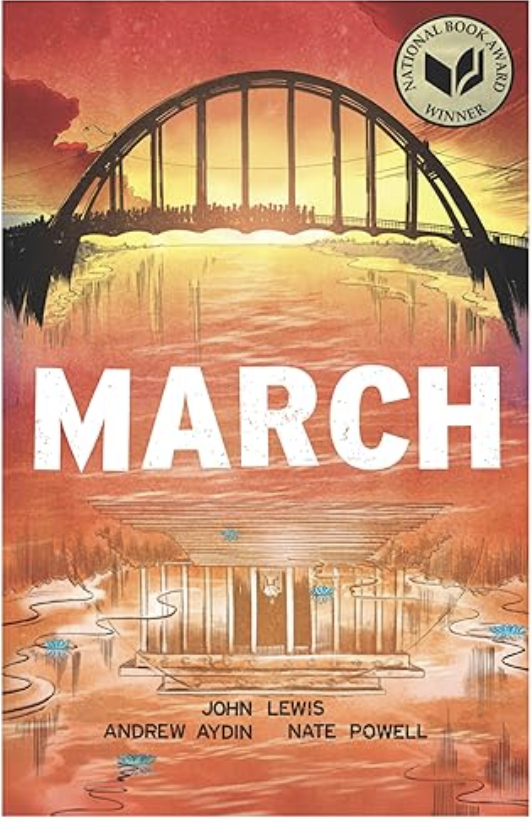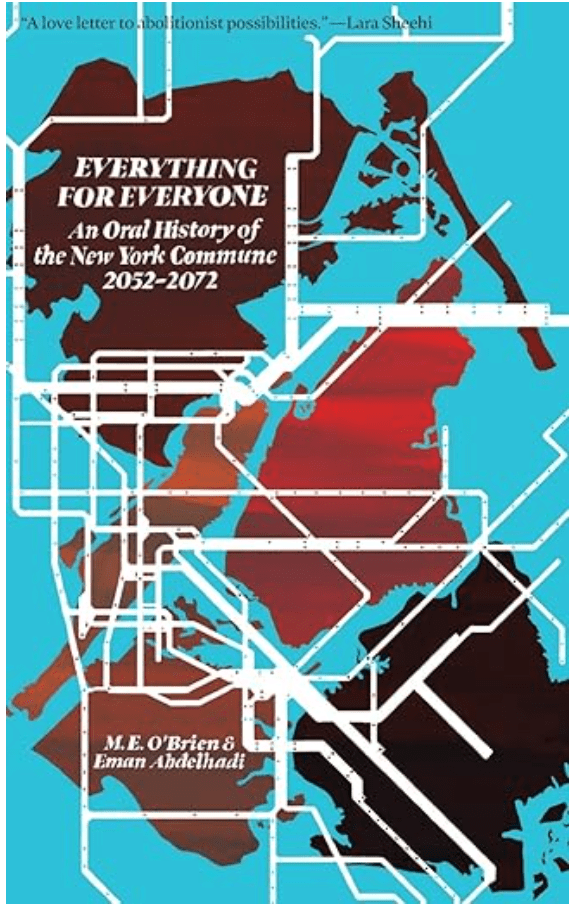Interrogating Resistance in the Classroom
0May 24, 2024 by Kurt Ostrow

I will admit upfront that violence scares me. In high school, I was a Model U.N. delegate mocked by the other boys in class for my pacifism. As I got older and studied history and ethics, I had to ask myself hard questions: Do I support the constitutional right to bear arms as a failsafe against tyranny? Does state violence entitle people—especially colonized or enslaved people—the right to self-defense? What would I risk for freedom?
These questions aren’t rhetorical, but I’m not going to answer them here—nor am I going to take a stance on any acts of resistance, past or present. What I think doesn’t matter. It matters what our students think. In the wake of Hamas’ attack on October 7, Israel’s subsequent assault on Gaza, and a global response that has included rallies, vigils, resolutions, lawsuits, walkouts, sit-ins, bird-dogs, boycotts, hunger strikes, divestment campaigns, campus encampments, and transit blockades, I have been wondering how humanities teachers can tackle the ethics and strategy of resistance in our classrooms.
How can we foster thoughtful dialogue about freedom-seeking tactics? On charged subjects such as Israel-Palestine, the climate crisis, and white supremacy, how can we invite all our students to think critically as philosophers and strategists?
For the past few years, I represented my local Sunrise chapter in a nearby high school’s storied political radicalism course. I started my visits by having students debate this question from The Nation: “Should environmental activists sabotage fossil fuel infrastructure?” Professor Andreas Malm says yes, calling sabotage “a form of self-defense, or perhaps humanitarian intervention.” Climate organizer Daniel Sherrell says no. He concedes sabotage is ethically blameless before insisting the “real question the climate movement must ask itself is not whether sabotage is ethical, but whether the tactic is likely to succeed in bringing down temperatures.” In other words, whether the tactic is strategic.

I assigned sides randomly, great for diving right in and helping students to practice perspective-taking. (Still, I generally prefer dialogue over debate; I’m wary that the desire to win trumps the responsibility to be ethical.) Both teams read and annotated their articles, prepared their arguments in small groups, then elected speakers to represent them. After what was usually a lively back-and-forth, I explained Sunrise’s position against sabotage and outlined the youth movement’s track record of electoral campaigns, civil disobedience, and school strikes.
I appreciated these debates because I believe we have to interrogate resistance in the livewire of the present, not just behind the plexiglass of history. Time and again, we’ve seen movements, their leaders, and their tactics embraced only decades after the fact, once mainstream opinion has sufficiently shifted and the political calculus along with it.
An example: Was abolitionist John Brown’s raid on Harper’s Ferry ethical and/or strategic? To cram for the Praxis social studies exam recently, I read a U.S. history study guide littered with regressive analysis and insensitive language, but then there was this curious passage about Brown and his failed uprising:
When a guy like Brown does something violent, labeling him crazy is natural. Maybe he was crazy, but how crazy and violent was the slave system he hated? People seem to have more tolerance for institutionalized violence than they do for attacks against violence institutions.
I have to imagine this historian—hardly an antiracist vigilante—empathizes with Brown in part because it’s more or less safe to do so, the evils of chattel slavery now obvious for enough Americans that abolitionist violence looks heroic. And though he admits the raid “never could have worked,” he points out that Brown’s hanging “raised an anger in the North that helped elect antislavery Abraham Lincoln,” who then carried out the institutionalized violence (i.e., war) necessary to “end slavery.”
So, was Brown’s raid ethical and/or strategic? Let’s ask our students. What if—instead of writing a series of static dates, causes, and battles on the board—we discussed whether the Civil War itself was ethical and/or strategic? These questions would remind students that history was once a chaotic present of hotly contested choices. That our own present will be history someday—and which side do they want to be on?
The hindsight that history affords explains why we should probably start there. A careful study of resistance—from the Boston Tea Party and suffragists’ picketing the White House to CORE’s Freedom Rides and ACT UP’s kiss-ins; from the Haitian revolution and Gandhi’s satyagraha to the anti-Nazi White Rose leaflets and Palestinians’ Great March of Return—can inspire rich, evidence-based conversations, and the Zinn Education Project and Facing History and Ourselves boast extensive libraries of relevant texts and role-play activities.



John Lewis’ graphic memoir March and Dave Cullen’s Parkland could serve as whole-class nonfiction reads for their fine-grained depictions of youth organizing. Educators could also excerpt Vincent Bevins’ recent book If We Burn, which considers why mass protest has failed to win lasting change around the world, as well as Erica Chenoweth’s study of the 3.5% rule, which concludes nonviolent campaigns are twice as likely to succeed compared to violent ones.
Fiction offers potential for study too, with the benefit of stories crafted to be engrossing. Amy Reed’s The Nowhere Girls documents feminist organizing at a diverse public high school; Jason Reynolds and Brendan Kiely’s All American Boys culminates in an anti-racist die-in. Both YA novels are page-turners, and students love them.
As much as I gravitate toward realism, sci-fi/fantasy has been most on my mind lately. There are stories set in our own world—such as Kim Stanley Robinson’s bureaucratic Ministry for the Future—that vividly describe the process of remaking it. One of Eman Abelhadi’s chapters from Everything for Everyone: An Oral History of the New York Commune, 2052-2072 even describes the guerrilla warfare and popular revolt necessary for “Liberating the Levant.” There are also allegorical stories set in other worlds. Who are the Star Wars’ Rebels if not anti-imperial freedom fighters? What is the Hunger Games’ District 13 in if not the revolutionary guard?




In my college creative writing class this semester, as part of independent reading, one student read Ender’s Game. In his reflection on the novel, he made this unprompted connection:
Obviously, there are many parallels to real wars in Ender’s Game. The easiest and most topical example…is the war between Israel and Palestine, with…the humans being equivalent to Israel and the buggers being equivalent to Palestine. I do not believe that Palestinians want to be fighting this war, but due to the aggressive colonization of their lands and the inhuman actions of Israel, more radical groups have seen violence as their only avenue for liberty. I think that, like in Ender’s Game, much of the support for Israel comes from a lack of understanding of the Palestinian people and their plight, and that if people were actually able to see things from their point of view, the world’s reaction to the war would be much different.
As we think about social, political, and military conflicts in the U.S. and abroad, it’s clear students can make connections with unrelated sci-fi/fantasy texts: “Obviously, there are many parallels…” Why not prompt our students to compare novels/films with past or present conflicts of their choice, requiring close reading and research? (Some connections even come ready-made: George Lucas said the Rebels were inspired by the Việt Cộng, and Amandla Stenberg—the actor who played Rue—criticized the hypocrisy she saw in sympathy for Black residents of District 11 who rioted after Rue’s murder but condemnation for Black residents in Baltimore who rioted after Freddie Gray’s.) We can also problematize fictional resistance—Was District 13 ethical and/or strategic in their revolutionary war against the Capitol?—just as we do historical resistance: Were the American colonists ethical and/or strategic in their revolutionary war against the British? These are difficult, open questions.
The history of resistance proves debate over tactics is healthy and inevitable, splintered as that history is into factions. That’s why it makes for such an urgent classroom topic. As educators, we can create the space necessary for students to evaluate for themselves the ethical and strategic questions that resistance always raises.

Kurt Ostrow taught at the Ohio State University in Columbus, OH, and serves as assistant editor of the BLTN Journal.
Category Featured, Spring / Summer 2024 | Tags:
Leave a Reply